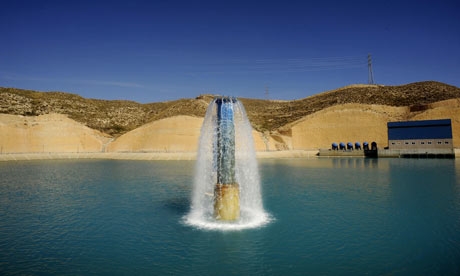A recent report by Ventures Middle East expected GCC governments to invest over USD100 billion in the water sector between 2011 and 2016, to improve desalination technologies involving solar energy, and maximize on wastewater treatments and recycling, WAM news agency reported.
GCC nations are seeking to overcome water shortage and ensure sustainable resources for the future, as their population grew on a rapid pace and water quality deteriorated.
The Arab world is likely to witness a water crisis around 2025 unless the Arab states execute effective mechanisms for sustainable water management and measures to reduce the agricultural consumption of water, said a joint research by the Euro Arab Organization for Environment, Water and Desert Ranches and the University of Jordan.
In the UAE, Abu Dhabi plans to add more than 30 million gallons per day of desalination capacity to its water network through a power and water plant extension at Mirfa.
Also, FEWA, the electricity and water authority for Ajman, Ras Al Khaima, Umm Al Quwain and Fujairah, plans to produce 115 million liters per day of pre-treated seawater to feed the reverse osmosis membrane system through its Al Zawrah seawater reverse osmosis plant in Ajman.
The Public Authority of Electricity & Water in Oman is seeking to set up strategic water storage reservoirs in Muscat to overcome a crisis situation if desalination plants are disrupted.
In Qatar, the government is seeking to increase its capacity in both the wastewater and water areas through independent water and power projects, the largest being the Ras Girtas project, currently under construction in the Ras Laffan industrial complex.
Kuwait Ministry of Electricity and Water plans to build two reverse osmosis desalination plants in Doha and Kuwait to produce nearly 50 million gallons of water per day.
























































